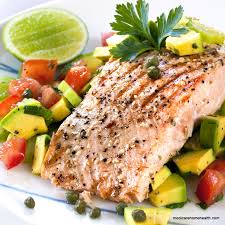Top 3 Healthy Eating Tips for Seniors
It’s a known fact that as we age, our body’s metabolism slows down and our body’s system gets weaker making us more prone to developing chronic diseases. This is why seniors, in particular, may need to change their diet especially when their diet is composed of unhealthy foods.
Physicians usually recommend that seniors should eat lots of fruits and vegetables as well as proteins and whole grains in order for them to maintain a healthy diet that could improve their overall health.
The American Dietetic Association has recommended that aside from a healthy diet, caregivers could also take part in boosting their loved one’s health by incorporating a few extra nutrients in their food.
1. Fix Them a Nutrient-Rich Meal
As a person ages, there is a need for them to decrease their calorie intake and increase their nutrient intake. Nutrients such as calcium, omega 3, and potassium are important to provide enough nutrients for your senior loved one. Here’s why:
Calcium
As people grow older, they become more susceptible to vitamin D and calcium deficiency which could affect their bone health. This is why there is a need for older people to increase their calcium intake in order to maintain their bone strength. Aside from that, lack of calcium in the body could also help increase blood pressure.
According to the World Health Organization, people over the age of 50 are recommended to take at least 1,200 milligrams of calcium each day. This is more or less equal to 4 cups of orange juice, dairy milk, fortified non-dairy milk such as soy or almond. Kale, turnip greens, and other leafy vegetables are also known to be rich in calcium that is easily absorbed by the body.
If your loved one finds it challenging to incorporate this much calcium into their everyday meal, your physician may recommend calcium supplements should they need it.
Omega 3
Omega 3 fatty acids have shown that they are extremely helpful in reducing oxidative stress and inflammation in the body which are one of the top causes of heart diseases, arthritis, and cancer. Canola oil, flaxseed oil, flaxseed, walnuts, and fish are great sources of the omega 3 nutrient. Seniors are recommended to have at least 2 meals per week that are rich in this nutrient. If there is a need to fill in the deficiency, your loved one’s doctor may recommend omega 3 supplements.
2. Reduce Sodium Intake
One of the most important thing that a caregiver can do to reduce the risk of hypertension in their senior loved one is to prepare a meal that has a low salt content. Many people don’t know that table salt only accounts for a small percentage of the overall sodium content in food.
Processed, frozen or any takeout foods are usually the type of food that have a high sodium content so it’s best for seniors to eat less or completely avoid these. Fresh frozen produce, on the other hand, along with dry beans, unsalted nuts, and nut butter, and whole grains like oats or brown rice are known to have less sodium content. As much as possible try to incorporate these types of food to your loved one’s diet.
3. Let them Drink Lots of Water
Older people are more at risk for dehydration and electrolyte imbalance. The main reason is that as a person ages, the body’s ability to conserve water is reduced and older people often don’t feel thirsty and when they do, the body’s fluid levels are already low. Even if that’s the case, they still need the same amount of liquids in their bodies which is why you need to make sure that they’re drinking water as often as they can even if they don’t feel thirsty.
You can tell if your loved one is properly hydrated or lacks water through the color of their urine. If their urine is clear or light-colored, they’re likely properly hydrated. However, if it appears cloudy or dark in color, then it’s a sure sign that they need to start drinking lots of fluids.
Helping Your Senior Loved One Switch to a Healthier Diet
Making the switch to a healthier diet can be quite challenging for most people – especially seniors since they have become stuck to the habit. Most people are not usually open to changes. This statement holds true for the seniors which is why it’s important to make gradual changes.
There are times when your senior loved one will resist making dietary changes even if the doctor says so. It’s especially common among dementia patients who sometimes insist on doing what they want. However, you may be able to do something about this by being creative.
Deciding to make dietary changes is essential especially as people get older. Giving your senior loved one a nutrient-rich meal as often as possible helps in preventing and managing chronic medical issues such as cardiovascular diseases. Eating healthy won’t only ensure that your loved one’s health is at its best but it will also ensure that they will spend the rest of their golden years with so much more energy.
At Vista Living Senior Care, our team helps seniors improve the quality of their life by making our purpose built 10 resident Luxury Senior Care Homes in the Phoenix Arcadia area something special. We focus on Care, Healthier Diet and an Activity Program Focused on Smiles & Laughter.
Sit and Be FIT exercises start our days and attendance is impressive with no one showing up late.

Seniors exercising At Vista Living Senior Care
We urge you to consider Vista Living Senior Care for your loved one, please schedule a tour and learn how we can help. We know we have something special. Let us show you.
For more information please call Vista Living Senior Care at 480-456-1919 or Visit VistaLiving.net.

